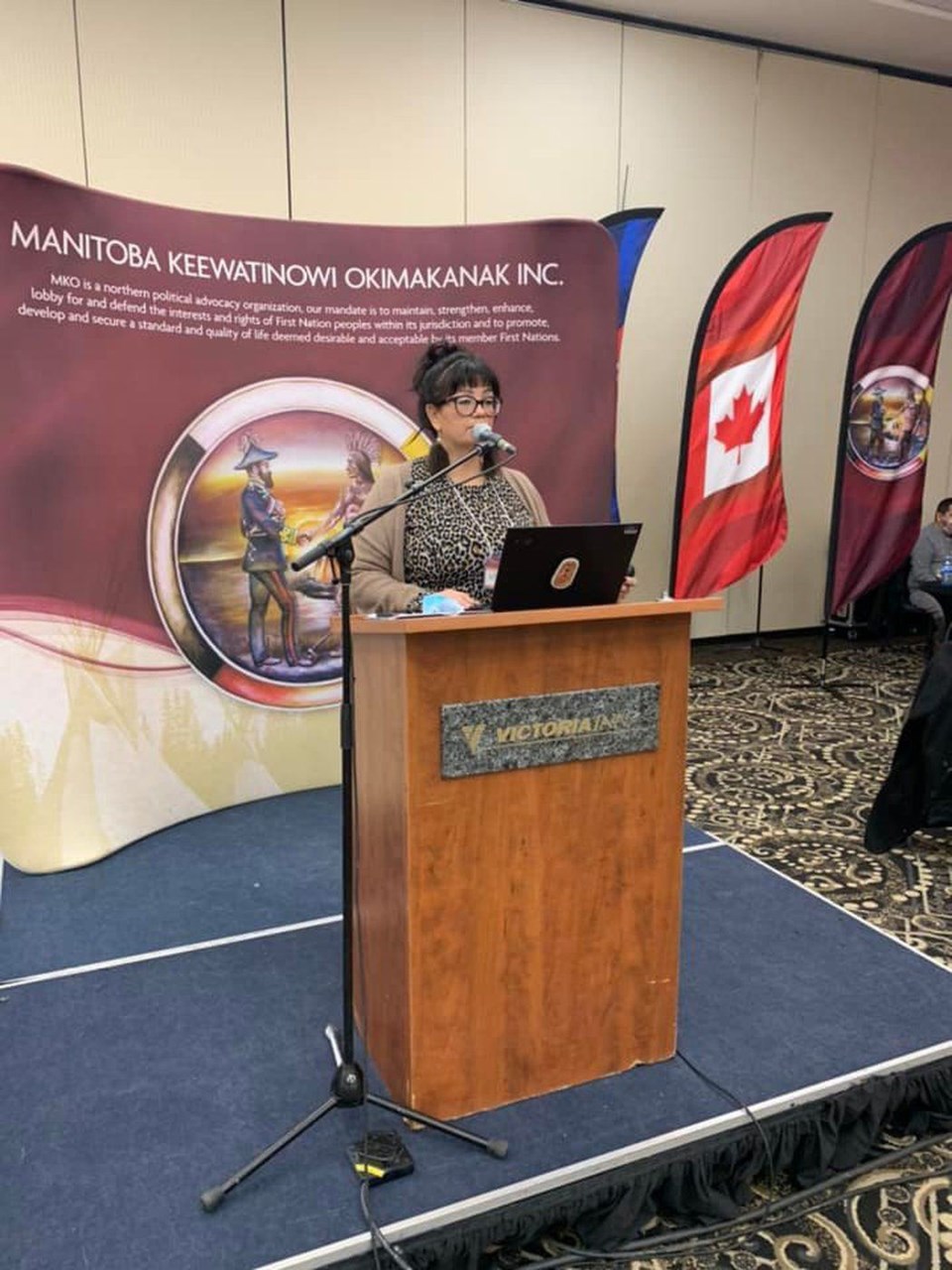While the COVID-19 pandemic has caused suffering and hardships for many Canadians, a local Indigenous leader and advocate says the pandemic has also led to an alarming increase in cases of violence against Indigenous women and girls across the country and in communities here in Manitoba.
Indigenous leaders in Manitoba gathered in Winnipeg last week for Manitoba Keewatinowi Okimakanak (MKO) Chiefs Assembly, with this year’s theme for the assembly being “Leading the Way on Transformative Change.”
During the first day of meetings Nov. 16, MKO Missing and Murdered Indigenous Women and Girls (MMIWG) Liaison director Hilda Anderson-Pyrz spoke about the rise of violence against women that has been seen here in Manitoba and around the world since the pandemic first began.
“During the COVID-19 pandemic, the World Health Organization has also highlighted that there is a shadow pandemic and that is a pandemic of violence against women and girls,” Anderson-Pyrz said.
The MMIWG Liaison offers a wide range of programs and services to support people impacted by gender-based violence and to work to prevent further violence, and Anderson-Pyrz said their team includes 13 employees and a “provincial mandate” with offices in both Winnipeg and Thompson.
According to Anderson-Pyrz, that recent rise in violence against women and girls has been noticed here in Manitoba, and rates of violence have spiked in Indigenous communities in this province, leading to an increase in people seeking assistance and services from MKO’s MMIWG Liaison.
“We talked to our funder recently and they asked us what percentage of increases in services we have seen and sadly we have seen a 420 per cent increase in our services administered throughout the pandemic,” Anderson-Pyrz said.
Anderson-Pyrz is now calling on all levels of government and all portions of society to work together to combat violence against Indigenous women and girls, as she said solutions must be found through collaboration.
“That shows that as politicians and political leaders that we all have a responsibility to act,” she said. “We have to be solutions-focused when we look at strategies and how we address different impacts that we experience within our nations.”
And according to Anderson-Pyrz, the issues that have plagued Indigenous people and communities for years and have led to gender-based violence and violence against Indigenous women and girls stem from a system that she said for years has allowed for “systemic racism” towards Indigenous people in this country.
“Racism is killing our women and girls,” Anderson-Pyrz said. “In so many aspects of our realities as Indigenous people, racism is a major contributor in all that we experience and the steps to address and redress this genocide must be no less monumental than the combination of systems and actions that have worked to maintain colonial violence for generations.”
“We all have a collective responsibility.”
A study released in the fall of 2020 showed that the first wave of COVID-19 lockdowns in Canada in the spring of 2020 led to a sharp increase in calls to police for domestic violence across the country, and among all communities and demographics.
Data released in September of 2020, which was gathered from 17 of Canada’s largest police forces, showed that in the spring of 2020 police responded to more than 38,000 calls for domestic disturbances and violence between March and June of 2020, an increase of more than 4,000 such calls from the same period in 2019.
Support numbers
November is Domestic Violence Awareness Month in Canada, and anyone dealing with domestic abuse or who knows someone dealing with abuse in Manitoba has a number of options to seek help including:
- Toll-Free Province-Wide Domestic Abuse Crisis Line (24 hours) – 1-877-977-0007
- Victim Services – 204-945-6851
- Klinic Crisis Line – 204-786-8686
- Klinic Sexual Assault Line – 204-786-8631
- Mobile Crisis Services – 204-940-1781 (General) or 204-949-4777 (Youth)
— Dave Baxter is a Local Journalism Initiative reporter who works out of the Winnipeg Sun. The Local Journalism Initiative is funded by the government of Canada.






